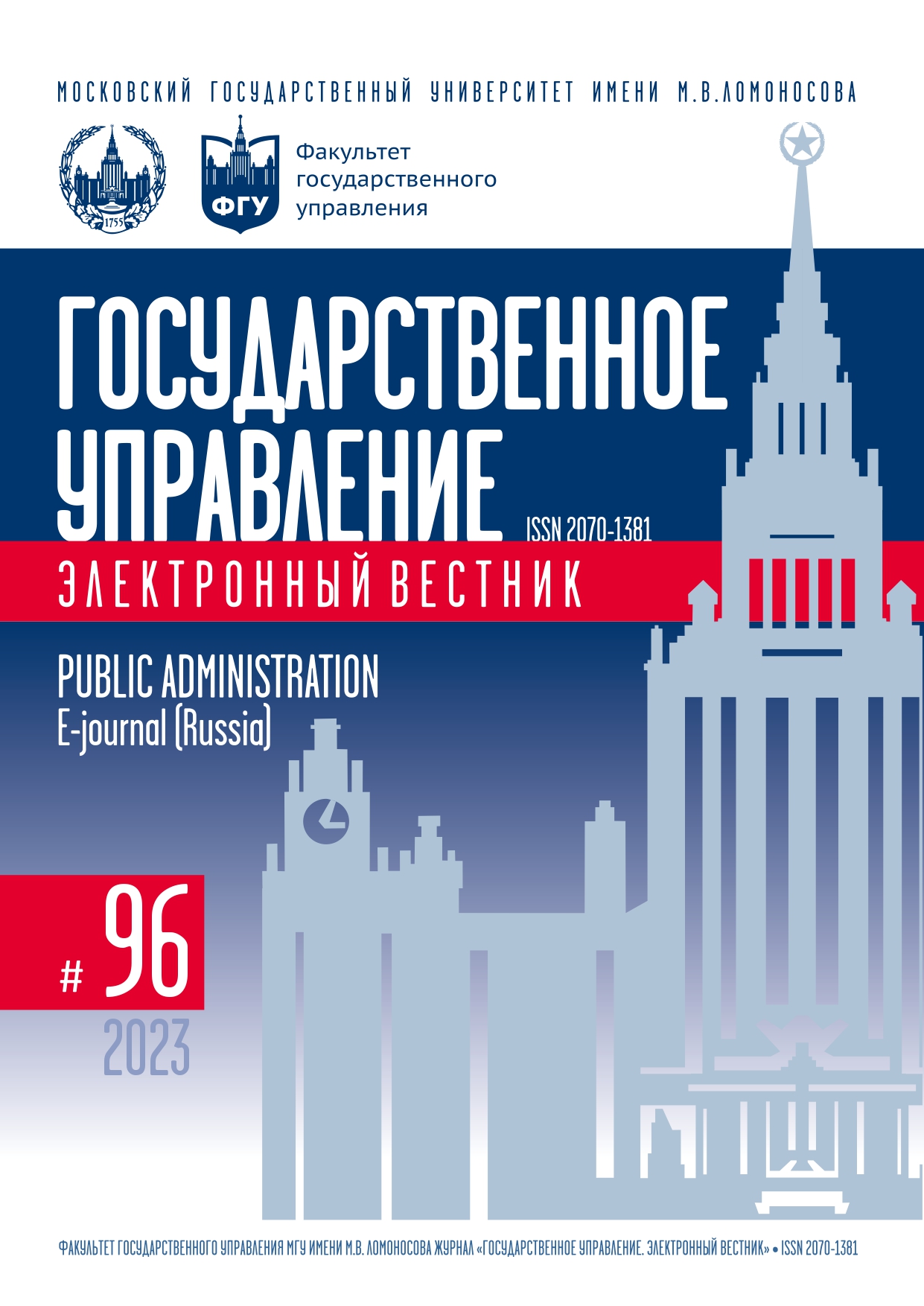Параллельный импорт и другие экономические меры как ответ на санкции в отношении российского импорта
Ключевые слова:
Внешняя торговля, санкции, импорт, параллельный импорт, таможенные пошлины, индекс проникновения импорта, таможенные льготыАннотация
В статье раскрывается влияние западных санкций на экономическую безопасность Российской Федерации, в частности анализируются последствия для внешней торговли — импорта товаров в Россию. В качестве методов и материалов исследования использованы методы системного анализа и синтеза, контент-анализ научной литературы и статистических обзоров по исследуемой тематике, материалы периодической печати российских и зарубежных авторов. Несмотря на умеренное значение индекса проникновения импорта, в России наблюдается абсолютная зависимость от импорта промышленно-инвестиционных товаров (машин, оборудования, транспорта и т.д.). В ходе анализа обозначаются предпринимаемые Правительством, Минпромторгом и ФТС РФ меры стабилизации текущей ситуации с импортом в Россию — стратегическое торговое партнерство и налаживание новых логистических цепочек со странами Востока, расширение перечня товаров, при ввозе которых снижается ввозная таможенная пошлина или взимается нулевая пошлина. Особое внимание уделяется параллельному импорту как способу поставки санкционных товаров на территорию страны. Параллельный импорт был легализован в мае 2022 года и предполагает замену национального принципа исчерпания прав на международный товарный знак. Демонстрируется, что параллельный импорт действует в отношении конкретного перечня товаров западных компаний и брендов, ушедших с российского рынка после начала специальной военной операции; список товаров предполагает постоянное обновление в зависимости от ситуации. В заключение сделан вывод о том, что дальнейшее развитие ситуации с импортными поставками на территорию России зависит от двух факторов: намерений западных стран в вопросе усиления санкционного давления и готовности российских властей к применению различных стабилизирующих мер для противостояния введенным санкциям.
Библиографические ссылки
Добродомова Т.Н., Задорожная Е.А., Ширяева Н.О. Статистика таможенных платежей // Научное обозрение. Экономические науки. 2022. № 2. С. 21–26. DOI: 10.17513/sres.1099
Дроботова А.Г. Параллельный импорт в России и способы защиты от него // Инновации. Наука. Образование. 2021. № 43. С. 466–474.
Гулиев Ш.А. Правовая оценка ограничительных мер ЕС в отношении России // Гуманитарные, социально-экономические и общественные науки. 2022. № 8. С. 66–68. DOI: 10.23672/i5162-7264-2157-j
Гурова И.П. Импортозамещение в странах Евразийского экономического союза // Россия: тенденции и перспективы развития. 2016. Вып. 11. Ч. 3. С. 242–247.
Квиртия М.С. Оценка динамики поступлений сумм таможенных платежей под влиянием пандемии // Молодой ученый. 2022. № 16(411). С. 347–348.
Кузнецова Г.В. Трансграничные переводы мигрантов и возможности мобильного банкинга // Сберегательное дело за рубежом. 2020. № 2. С. 36–39. DOI: 10.36992/75692_2020_2_36
Ларионова И.В. Триггеры и барьеры на пути обеспечения финансовой стабильности // Банковские услуги. 2020. № 2. С. 20–27.
DOI: 10.36992/2075-1915_2020_2_20
Латтеган К.О. Преимущества и недостатки параллельного импорта в России // Вектор экономики. 2022. № 6(72).
URL: http://www.vectoreconomy.ru/images/publications/2022/6/worldeconomy/Lattegan.pdf
Понамаренко А.А. Параллельный импорт и обход патентообладателей как ответная мера России на санкции недружественных стран // Научный аспект. 2022. Т. 1. № 3. С. 11–19.
Сонич А.А. Потенциальные последствия легализации параллельного импорта в России в 2022 году // Вопросы российского и международного права. 2022. Т. 12. № 3А. С. 98–104.
Kalygina V.V. International Technology Transfer as an Effective Tool of Export-Oriented Import Substitution in Russia // Вестник Российского университета дружбы народов. Серия: экономика. 2022. Т. 30. № 2. С. 231–241. DOI: 10.22363/2313-2329-2022-30-2-231-241
Tolkachev S., Teplyakov A. Import Substitution in Russia: The Need for a System-Strategic Approach // Russian Social Science Review. 2022. Vol. 63. Is. 1–3. P. 15–40. DOI: 10.1080/10611428.2022.2111162
Nguyen T.T., Do M.H. Impact of Economic Sanctions and Counter-Sanctions on the Russian Federation’s Trade // Economic Analysis and Policy. 2021. Vol. 71. P. 267–278. DOI: 10.1016/j.eap.2021.05.004
Загрузки
Опубликован
Наиболее читаемые статьи этого автора (авторов)
- Цзя Баосинь, Сенотрусова Светлана Валентиновна, Инструменты государственного регулирования международной торговли и управления лесами в Китае , Государственное управление. Электронный вестник: № 100 (2023)
- Сенотрусова Светлана Валентиновна, Соколова Мария Игоревна, Ретроспектива торгово-экономического сотрудничества РФ и ФРГ , Государственное управление. Электронный вестник: № 93 (2022)
Похожие статьи
- Швыряев Павел Сергеевич, Кадровая обеспеченность в сфере информационных технологий в России: проблемы и перспективы , Государственное управление. Электронный вестник: № 97 (2023)
- Лапидус Лариса Владимировна, Гостилович Александр Олегович, Трофимов Иван Сергеевич, Управление качеством услуг байкшеринговых и кикшеринговых цифровых сервисов: оценка индексов NPS и CSI , Государственное управление. Электронный вестник: № 101 (2023)
- Ломагин Никита Андреевич, Роль внешней разведки в принятии решений в годы Великой Отечественной войны: новые документальные материалы из архива Службы внешней разведки Российской Федерации , Государственное управление. Электронный вестник: № 113(S) (2025): Стратегии государственного управления в годы Великой Отечественной войны
- Шуранова Анна Артёмовна, Петрунин Юрий Юрьевич, Энергетический кризис 2021–2022 гг. в отношениях России и Европейского союза , Государственное управление. Электронный вестник: № 90 (2022)
- Евтянова Дарья Вячеславовна, Концепция и принципы государственного регулирования экономики для обеспечения выхода из экономического кризиса Российской Федерации , Государственное управление. Электронный вестник: № 92 (2022)
- Сажина Муза Аркадьевна, Ильина Анастасия Алексеевна, Национальная инновационная система в условиях дестабилизации экономики , Государственное управление. Электронный вестник: № 84 (2021)
- Кулькаев Григорий Александрович, Мозалева Наталья Игоревна, Леонтьев Дмитрий Николаевич, Анализ отечественного и зарубежного опыта проектного управления в сфере реализации концепции электронного правительства , Государственное управление. Электронный вестник: № 92 (2022)
- Кошевой Олег Сергеевич, Определение критериев оценки использования населением портала государственных услуг , Государственное управление. Электронный вестник: № 93 (2022)
- Харитонова Наталья Ивановна, Максимов Алексей Сергеевич, Взаимодействие России с ключевыми геополитическими оппонентами в условиях гибридной войны: комплексный стратегический подход , Государственное управление. Электронный вестник: № 95 (2022)
- Наумов Александр Олегович, Концепция «мягкой силы» Джозефа Ная в зарубежном научном дискурсе: интерпретация и критика , Государственное управление. Электронный вестник: № 89 (2021)
Вы также можете начать расширеннвй поиск похожих статей для этой статьи.




